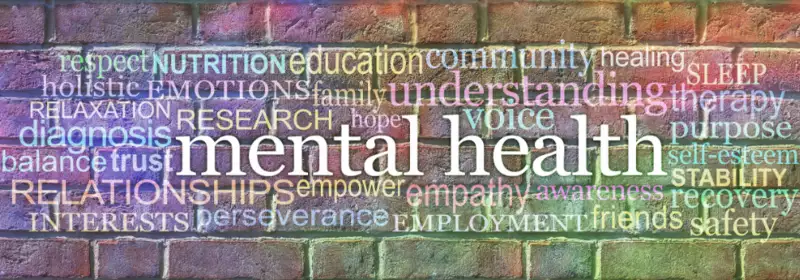Advocacy is the act of providing support to another person or group to ensure their rights, needs and goals are heard and met.
Advocates provide an essential service, helping individuals with diminished capacity to understand their rights, the services available to them as well as ensuring that their personal goals are being listened to by service provider. They are a pillar of support for those that are vulnerable or need help making important decisions about their life.
Advocacy for at-risk individuals has been for some time, including the elderly, young people and individuals with physical disabilities. It is only recently that individuals with mental health issues have been offered the same level of support.
This was in part due to the lack of understanding surrounding mental health issues and the associated stigma. However, the need for safeguarding and advocacy for individuals with mental health issues is as real as any other disability.
Person-centred approach dictates that the needs and goals of the individual must be taken into account. Regardless of their challenges or the perceived need by third parties.
Advocates play an essential role in ensuring those needs are met within the framework.

Advocacy breaks down barriers
For the most part, significantly less emphasis is placed on maintaining our mental health compared to our physical health. Reports suggest that currently, only 1 in 8 adults with mental health issues are getting treatment.
Mental health advocacy is necessary to overcome the many barriers that face individuals with mental health issues or enduring mental health disorders.
While there are many barriers to mental health, some of the most significant are:
Lack of mental health services: There is insufficient treatment provided in the UK and that what is available isn’t necessarily adequate. Those which are available are typically offered to those with immediate, life-threatening cases. Rather than early on for effective intervention and prevention.
Inequality in the importance placed on mental health and physical health: Evidenced by the investments made towards mental health treatment by governments and health insurance companies compared to regular health services.
Inadequate quality of care in existing facilities: Such as mental hospitals and other psychiatric facilities, with few alternative options available.
Paternalistic services: Emphasising the views of the service provider without considering those of the individual.
Human rights violations: Insufficient housing and employment provided for people with mental health disorders. Private landlords are reluctant to rent our properties to individuals with mental health issues. And there are too few organisations supporting them in a residential setting.
Stigma: Negative association surrounding those with mental disorders which often results in exclusion.
Absence of positive programmes: To promote the reality of mental health disorders and preventive methods in schools, workplaces and society.
Minimal or inadequate policies, programmes and legislation: Many countries worldwide have no mental health policy or programme.

It gives people a voice
Mental health advocacy allows the thoughts and feelings of the individual or a group to be voiced. It ensures that their opinions and preferences for their support and welfare are recorded and acted upon.
One of the key principles of person-centred approach dictates that service providers must prioritise the individual’s personal objectives. Even if they aren’t necessarily the priorities identified by the service providers.
This is because individuals who don’t require support are allowed to make decisions freely. Regardless of whether they are the right or most sensible choices. Individuals with diminished capacity or who require support should be extended that same level of freedom.
Mental health advocacy follows these key characteristics:
Empowering: Enabling people to speak for themselves or, otherwise, ensuring the points of view of those that can’t are acknowledged and understood. Allowing them to make informed decisions.
Independent: Expressing the individual's views without prejudice.
Inclusive: Making sure everyone has access to an advocate.
Impartial: Presenting the individual's point of view as valid and truthfully as possible, without judgement.
Confidential: Keeping information that clients share confidential unless harm is threatened. Sharing any information given about the client.
Free of cost: Advocates will not charge for their services.
Genuine mental health advocacy attempts to truly listen to the individual to find out what they want for their lives. Rather than have anyone decide on their behalf. As a result, those experiencing mental ill-health can express their own visions of the services they need. Increasingly making informed decisions about the treatment they receive and many other aspects of their lives.

Advocacy changes perceptions
As mental health advocacy has gained momentum, it has helped change the way the public perceives mental health.
The more people are educated about the nature of these challenges, the more the stigma associated with them reduces. People can see that those with mental ill-health are no different from others suffering from physical illnesses. Which lessens the disparity and encourages more equal treatment of mental and physical illnesses.
As a result, the needs of those with mental disorders can be better understood. Which leads to improved protection of their rights and enhanced quality in the services available. By better understanding mental health, we can better serve those with mental ill-health and those who care for them.
Study mental health
If you’re reading this with an interest to learn more about mental health yourself, we can help. We have a range of online courses dedicated to teaching people to support individuals with mental health issues.
Whether you want to pursue a career in mental health care or protect the mental health of others at work. There’s an online course that will help you get there.
You will learn how to identify problem areas, how issues can manifest and how to help people overcome their struggles. You’ll also learn about the support systems available, so you can put people on the path to improved mental wellbeing.
All our courses can be studied online from home, at a time that suits you. This means you can gain the skills and knowledge you need, without disrupting your lifestyle.
Find out more about the many mental health courses you can study with learndirect by clicking the link below and downloading our FREE brochure.



















